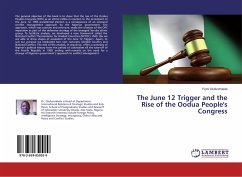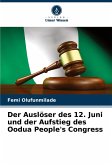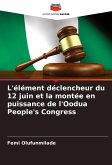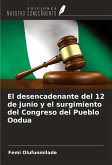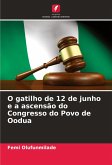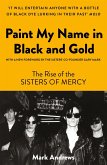The general objective of this book is to show that the rise of the Oodua Peoples Congress (OPC) as an ethnic militia in reaction to the annulment of the June 12, 1993 presidential election is a consequence of an unsound conflict management approach by the Nigerian government. The approach, which was coercive and zero-sum, made the creation of the OPC imperative as part of the defensive strategy of the besieged Yoruba ethnic group. To facilitate analysis, we developed a new framework called the National Conflict Thermometer for Divided Countries (NCTDC). With this we are able to show stages of escalation of the June 12 Trigger1. Again, to suit our purpose we explicated two new concepts: Divided Country and National Conflict. The text of the analysis, in sequence, offers a summary of Nigeria's political history from the period of colonialism till the take-off of the Fourth Republic in 1999, ending with remarks on the need for a change of Nigerian government's approach to conflict management.
Bitte wählen Sie Ihr Anliegen aus.
Rechnungen
Retourenschein anfordern
Bestellstatus
Storno

